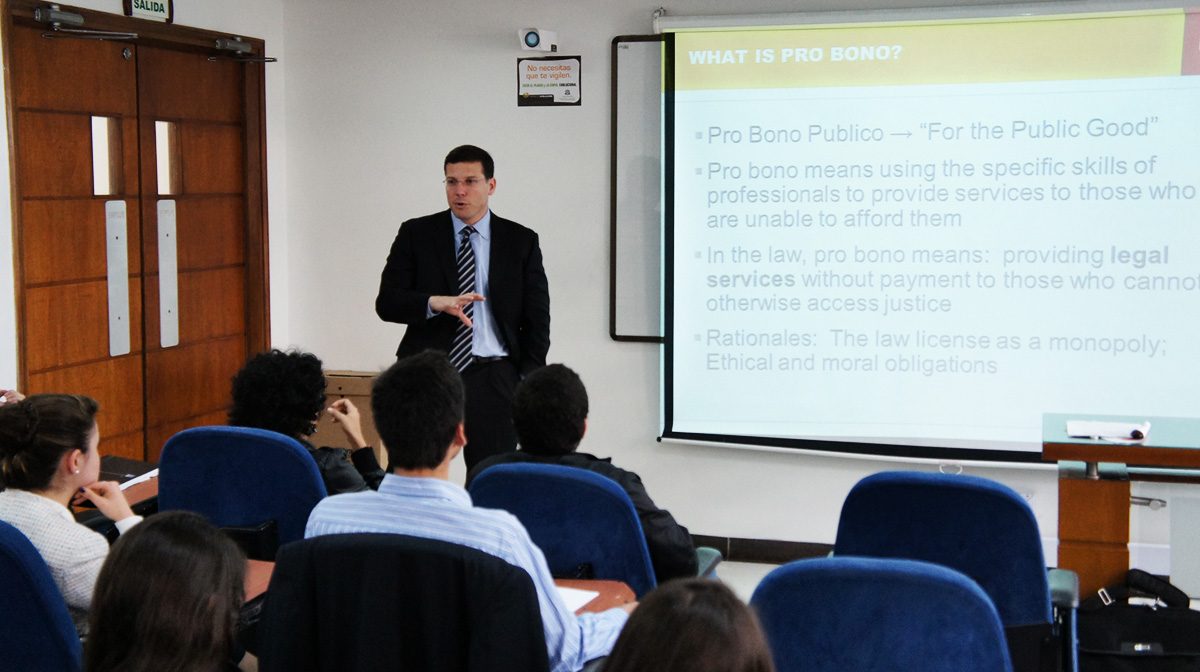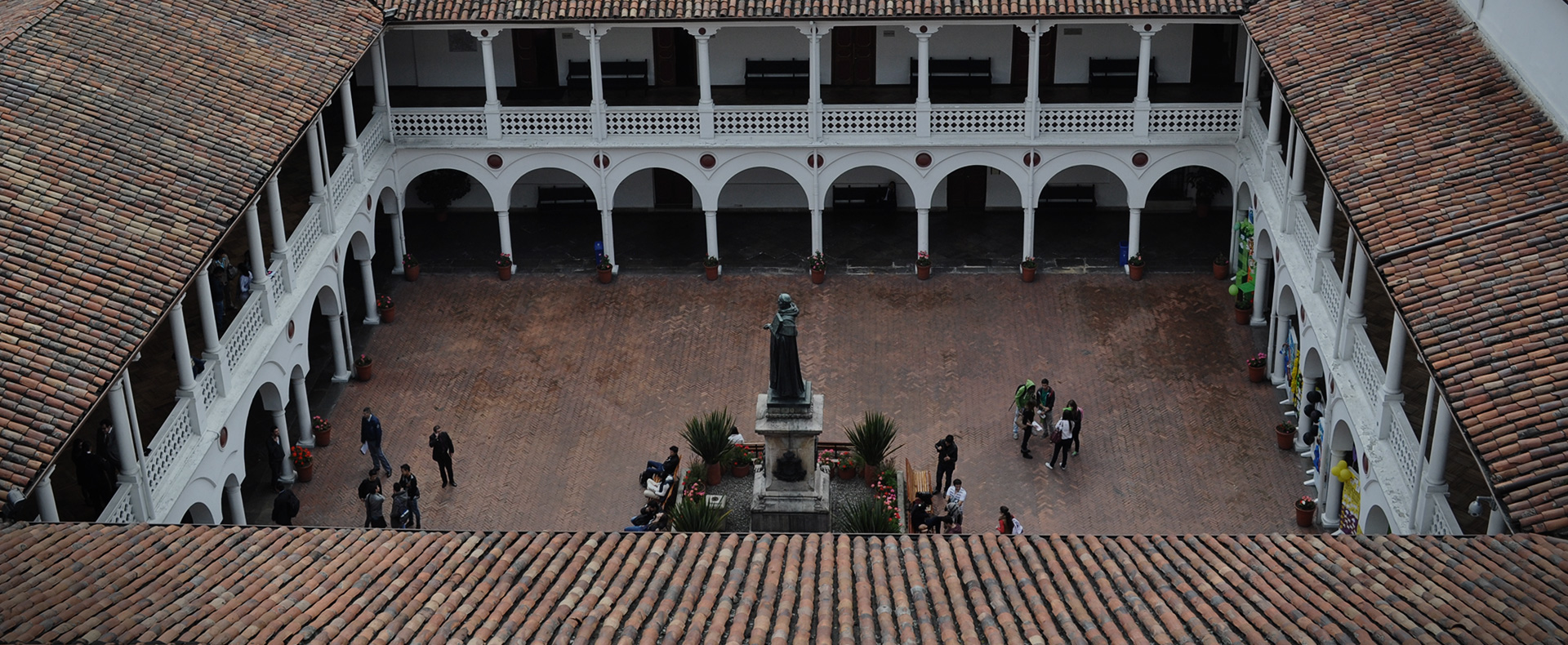Learning from future Colombian lawyers

Posted on 7 November 2013 by Sam Knowles
At nearly 9,000 feet above sea level, the thin air kept me humble as I tried to keep up with the relentless treadmill -- at least that was my excuse, huffing and puffing on my first day in Bogotá, adjusting to life a bit closer to the stars. Of the many images evoked by Colombian culture – fine coffee, pre-Colombian gold, arepas, fútbol – pro bono legal services was not among them. Yet our task was to introduce and encourage the culture of pro bono in a country with a robust demand, but nascent supply. As a Spanish teacher in a prior career, I looked forward to interacting with students again and perhaps picking up some of the local lexicon. At the same time, I recalled some of my less stellar moments as a teacher such as failed attempts to make the imperfect subjunctive and the works of Jorge Luis Borges accessible to 17-year-olds. I hoped our efforts to promote the significance of pro bono work would be more compelling.
Part of an ongoing effort to encourage the pro bono culture in Colombia, this project involved collaboration with a local nonprofit entity and law school administrators. What is access to justice and why is it important? This simple yet powerful question posed to Colombian law students began our interaction. The universal applicability of our message was readily apparent, as was the students’ desire to get involved and make a difference. As is often the case, we experienced a role reversal where the teachers learned from students through insightful comments and questions. Local issues such as property rights of indigenous peoples and corruption in public works were broached and discussed at length. Of course there was a skeptic or two, doubtful that a law firm would focus on anything other than profits. We welcomed all comments and, in the end, the pro bono platform of our law firm spoke for itself, underscoring the veracity of our message. Without question, our students came away with a greater appreciation of their role in facilitating access to justice and of the many nuances and benefits, both practical and altruistic, that stem from pro bono work.
There are no illusions that our mission is an easy one. It’s understood that the nature of this effort is ongoing, but we successfully conveyed our experiences and insights to a representative set of future Colombian attorneys. These students – like all of us – are now challenged to carry this call to action forward as they embark on their future endeavors.
Supporting a Pro Bono Culture in Colombia
